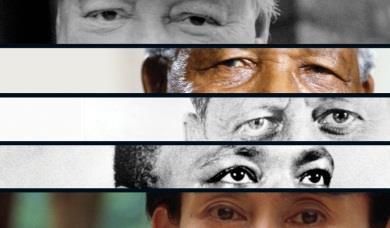Doctors should be encouraged to enter into leadership roles. It is essential for raising the standard of patient care, writes Chris Ham

New research from the King’s Fund and Birmingham University has found between 10 and 20 per cent of consultants are involved in formal leadership roles in most trusts, with clinical directors committing around 20 per cent of their time. This means that no more than five per cent of consultants who are not clinical directors’ time is allocated to leadership roles.
This matters because the Francis report highlighted that one of the factors behind patients dying unnecessarily or being harmed at Stafford Hospital was the disengagement of doctors. The report paints a picture of a hospital where many doctors and nurses chose not to act when patients were neglected and did not appear to take or accept responsibility for the quality of care those patients received.
HSJ Podcast
Several studies show a clear and positive relationship between medical engagement and organisational performance, reinforcing Lord Darzi’s argument that involving doctors in leadership roles is not an optional extra but central to raising standards of patient care. Why then does so much still need to be done almost 30 years after Roy Griffiths argued for medical leadership to become a much higher priority in his seminal report on NHS management?
Developing leaders
The answer can be found in part in the growth of managerialism and the reliance of successive governments on general managers to implement wave after wave of healthcare reform.
Substantial investment has supported the leadership development of general managers, whereas much less has gone into supporting doctors to become leaders.
‘Never has there been a greater need to move medical leadership into the mainstream’
Other barriers include: ill-defined career structures for doctors who may wish to move in and out of leadership roles; the insecurity of these roles; the lack of financial and other incentives; lack of skilled coaching and mentoring support; and the persistence of a culture that does not value these roles and often sees medical leaders as “going over to the dark side”.
Research has found that medical chief executives perceive themselves as gifted amateurs rather than skilled and trained professionals. There are, of course, some notable exceptions. A number of the trusts we studied prioritised the development of medical leaders through investment, talent spotting, succession planning and appointment processes and appraisals − and they are reaping the benefits. But even in these trusts we found an engagement gap between medical leaders and other doctors.
Generating followers
The gap that exists between doctors who are medical leaders and those who are not underlines the importance of organisational development that is focused on engaging staff. This is essential for the development of “followership”, without which doctors in leadership roles are doomed to fail. The autonomy of doctors means they are led through influence and persuasion − this is best done by respected peers.
The NHS must redouble efforts to strengthen medical leadership in order to bring about the step-change needed to respond to the Francis report and enable trusts to tackle the unprecedented financial and service pressures. This applies as much to commissioners as providers in view of the expectation that GP leaders in clinical commissioning groups be in the vanguard of innovation and improvement. Our work at the King’s Fund suggest there are five priorities:
- Although developing medical leaders is important, the focus needs to be on doctors developing alongside other clinicians and managers. High-performing healthcare systems foster the development of shared, team-based leadership rather than “heroic” leadership. They also often pair an experienced general manager with a medical leader in recognition that they have complementary contributions to make.
- Leadership development often has the greatest impact when it takes place in the organisational or system context. Jönköping County Council in Sweden and Intermountain Healthcare in the US have invested in in-house development programmes for thousands of staff.
- Trusts must ensure medical leaders have sufficient time to do the job, particularly clinical directors and others expected to retain substantial clinical commitments. The days on which clinical directors could be effective with a time commitment of only 10 to 20 per cent are long gone. The importance of these roles should be reflected in the job plans of consultants and the number of sessions allocated to leadership activities.
- The NHS needs more role models to inspire their peers and doctors in training that becoming a leader is an attractive option. This means supporting the brightest and the best into leadership roles by providing personal support and financial reward. It also means making it much easier for medical leaders to resume full-time clinical commitments, should they so wish.
- The Faculty of Medical Leadership and Management has a critical role to play. If medical leaders are to be seen as skilled professionals rather than gifted amateurs, there needs to be a professional body to which doctors can look − alongside the General Medical Council − for the setting and maintaining of standards.
The challenges facing the NHS in responding to the Francis report, together with the need to find unprecedented efficiency savings, can only be met through the active and enthusiastic engagement of doctors. This must be done in collaboration with other clinicians and the support of managers. Never has there been a greater need to move medical leadership into the mainstream.
Chris Ham is chief executive of the King’s Fund. He is co-author, with Helen Dickinson, Iain Snelling and Peter Spurgeon, of Are We There Yet: Models of Medical Leadership and their Effectiveness, funded by the National Institute for Health Research
Many trusts weak on medical leadership, research finds

There is a six fold variation in the amount of time medical directors spend on their board duties, new research into leadership has found.
- 1
- 2
 Currently
reading
Currently
reading
Medical leadership is vital for quality patient care
- 4





























5 Readers' comments